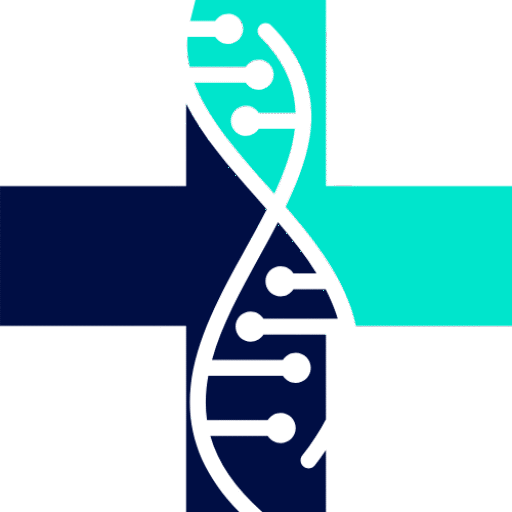The medical system in the US is a mess, and it’s not just you feeling frustrated. Despite spending a lot on healthcare, our health as a nation is getting worse. Big Pharma made a huge amount of money in 2023, yet we see more and more people dealing with serious health problems. It makes you wonder if the system is really helping us or just making things worse.
The High Cost of "Healthcare"
It’s pretty wild to think about how much money goes into healthcare in this country. In 2023 alone, big pharmaceutical companies pulled in $1.5 trillion. With that kind of money, you’d think we’d be the healthiest people on the planet. But nope, it’s the opposite. We’re seeing more and more cases of heart disease, cancer, obesity, diabetes, autoimmune issues, mental health problems, and even dementia. These numbers are higher than ever before.
It’s not just about the money, though. We’re actually falling behind other countries in terms of health outcomes, even some third-world nations. For example, our infant mortality rates are pretty low on the global totem pole. It’s a strange situation where we spend so much, but get so little in return.
The Insurance Maze and Short Appointments
One big problem is the way health insurance works. Dr. Rob Cyphus, a bariatric surgeon, put it well: private health insurance doesn’t really have a good reason to exist. It doesn’t save money, it doesn’t make care easier to get, and it doesn’t speed things up. All it really does is make a profit as a middleman between patients and doctors. You pay a ton for insurance, sometimes thousands of dollars a month, only for them to deny procedures or medications. They might even have someone who isn’t an expert in your specific condition denying your claim.
Then there’s the issue of time. Doctors often only get about 15 minutes with each patient. Out of that, maybe five minutes are actually spent talking to you face-to-face. The rest is spent on charting, ordering meds, and other paperwork. This is after you’ve waited forever to even get an appointment, and then waited even longer in the waiting room. It’s a system that doesn’t really allow for real patient care.
Key Takeaways
- Big Pharma’s Profits vs. Public Health: Despite massive profits, national health is declining.
- Insurance Barriers: High costs and frequent denials make getting care difficult.
- Limited Doctor-Patient Time: Short appointments hinder thorough care and understanding.
- Employer-Driven Insurance Changes: Frequent changes in insurance plans disrupt continuity of care.
- Lack of Nutritional Education in Medical Schools: Doctors often lack knowledge about diet and lifestyle.
- Gaslighting by the System: Patients are often told their symptoms are normal for age or genetics, rather than addressing root causes.
- Self-Empowerment is Key: Taking charge of your own health through research and independent providers is crucial.
The Revolving Door of Doctors and Insurance
It used to be that you’d have the same doctor for life, unless you moved. Not anymore. Employers are always looking for the cheapest insurance, so plans change every year. This means your doctor might not be covered next year, forcing you to find a new one. Then you have to wait months to get in with the new doctor, and by the time you do, your insurance might have changed again. It’s a never-ending cycle that makes it almost impossible to build a long-term relationship with a healthcare provider.
This constant churn also means doctors are pushed to see as many patients as possible. While we might spend an hour with a new patient in our clinic, many providers in corporate medicine are seeing 28 to 30 patients a day. Doctors themselves admit they’re mentally exhausted by patient number nine, which for some, is by 9:30 in the morning. How can you get good care when your doctor is already burned out?
The Knowledge Gap in Medical Education
It’s a bit shocking, but many medical schools don’t teach much about nutrition or the human body in a holistic way. Dr. Casey Means, who almost became an ENT, realized this when she questioned why she was operating on someone’s sinuses for the fourth time. She learned nothing about nutrition at Stanford, a top medical school. So, when you ask your doctor about hormones, low-carb diets, or essential oils, they often don’t know. Instead of admitting they don’t know, they might tell you these things are dangerous.
Dr. Tro made a good point: at some point, you have to realize you’ve been manipulated by the government and industry. If you have diabetes, fatty liver, mental illness, or infertility, you might need to do the exact opposite of what the mainstream healthcare system tells you. Medical schools are often influenced by big pharma, meaning they teach what benefits drug companies, not necessarily what creates health.
Taking Charge of Your Health
So, what can you do? The best thing is to try and stay out of the hospital and doctor’s office as much as possible. This means finding independent providers who aren’t tied to insurance companies. Follow people online, read books, and educate yourself. Of course, there are times when you absolutely need traditional medical care. If you get shot, or have a serious injury like a severed leg, go to the hospital. For things like a kidney stone, an ER visit for pain relief might be appropriate.
But for chronic conditions and overall health, corporate medicine often falls short. They know a lot about acute care, but very little about prevention or true health. Many doctors will gaslight you, telling you your symptoms are just because you’re old or it’s genetics. They’ll push pills instead of addressing the root causes. They might tell you to exercise, but they’re talking about running, not building muscle mass, which is a key indicator of longevity. They won’t tell you about the importance of protein, especially for women over 40.
It’s time to empower yourself, take charge of your health, and make the changes you need. We’re here to help you on that journey.




